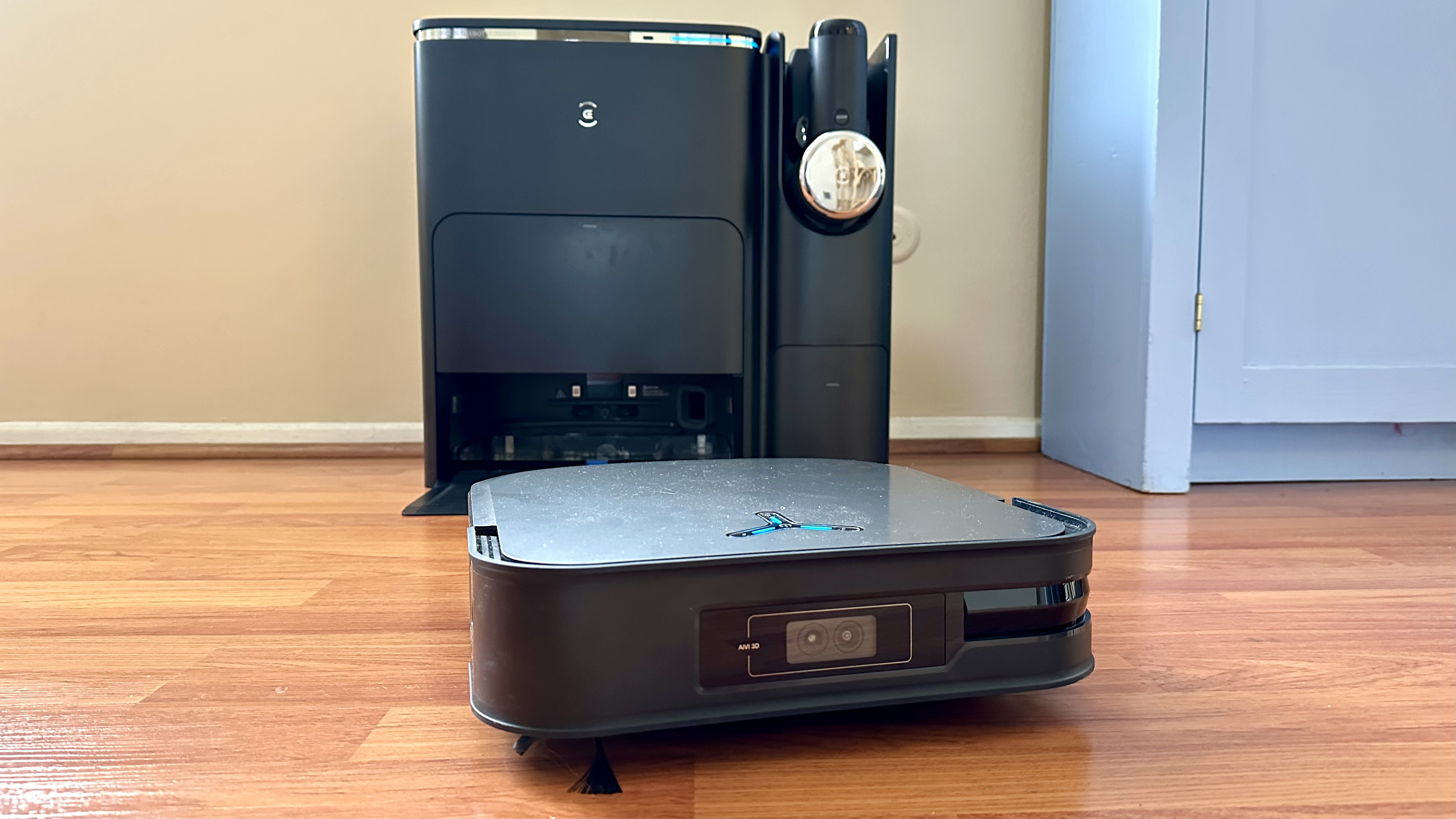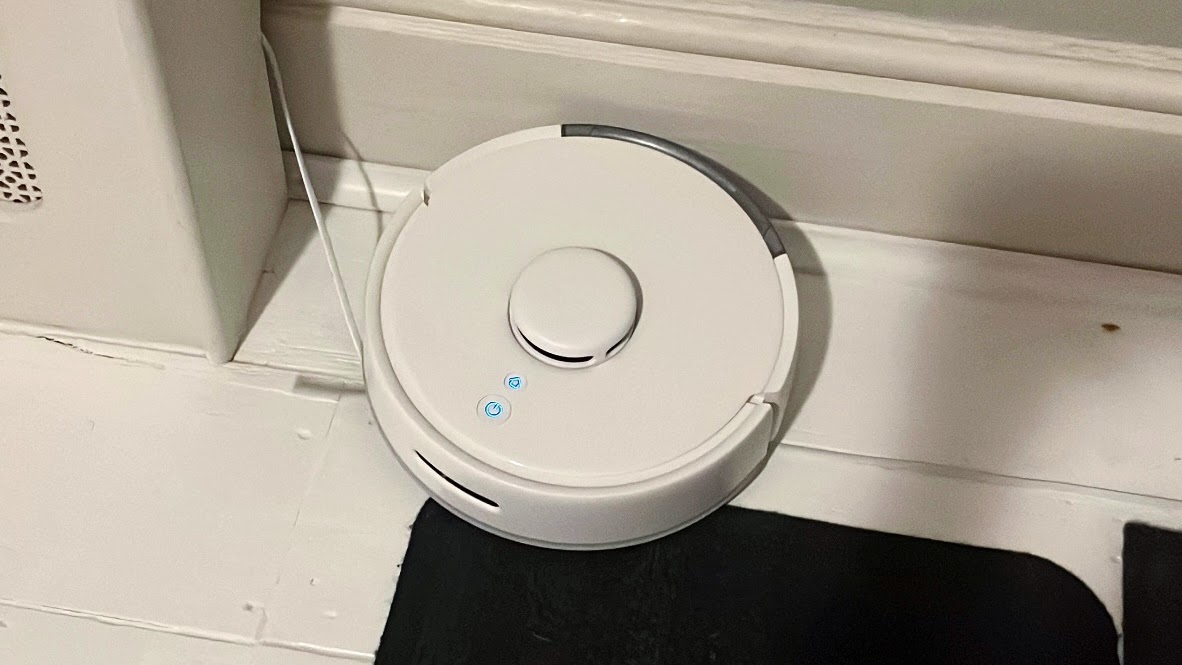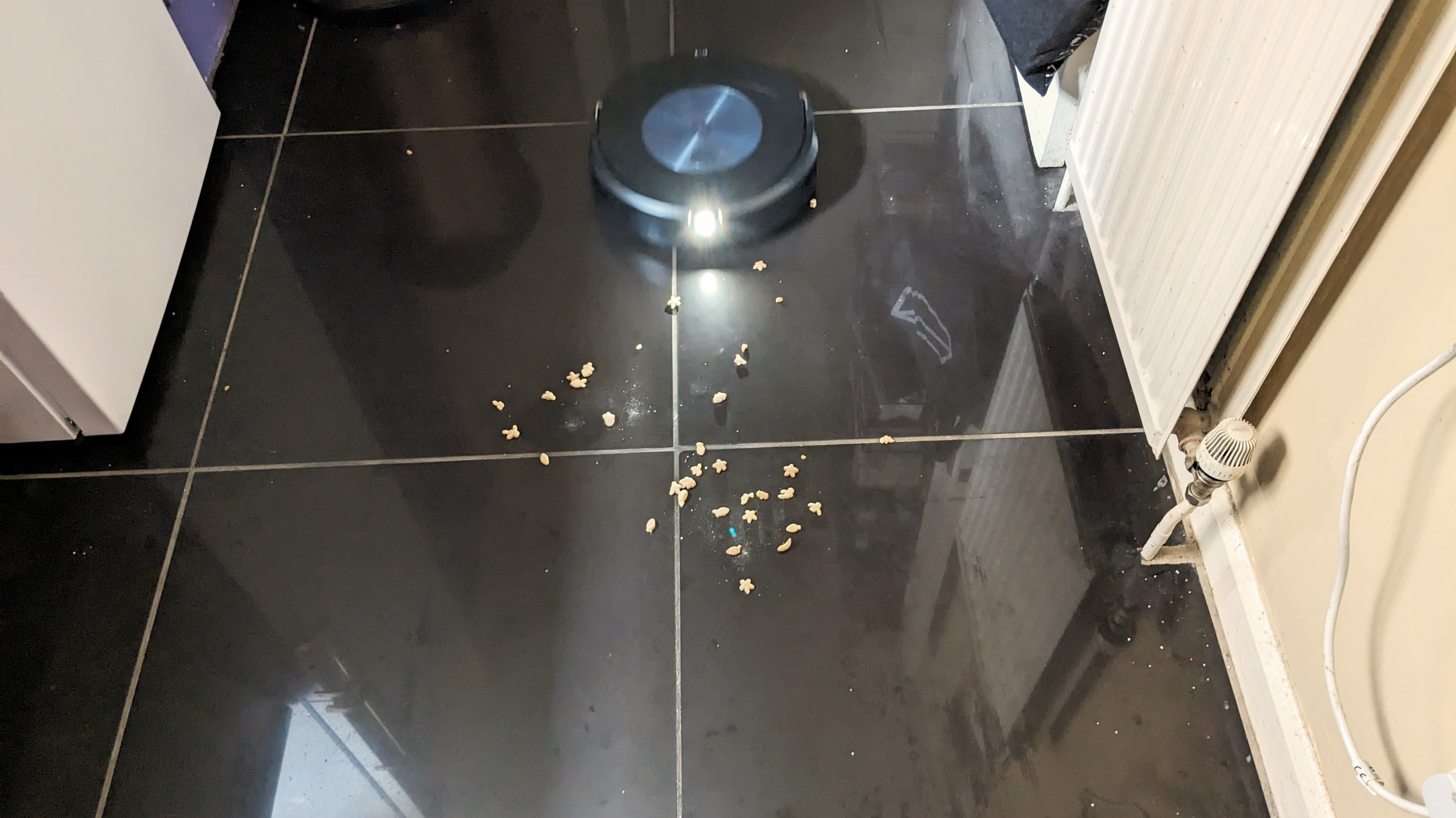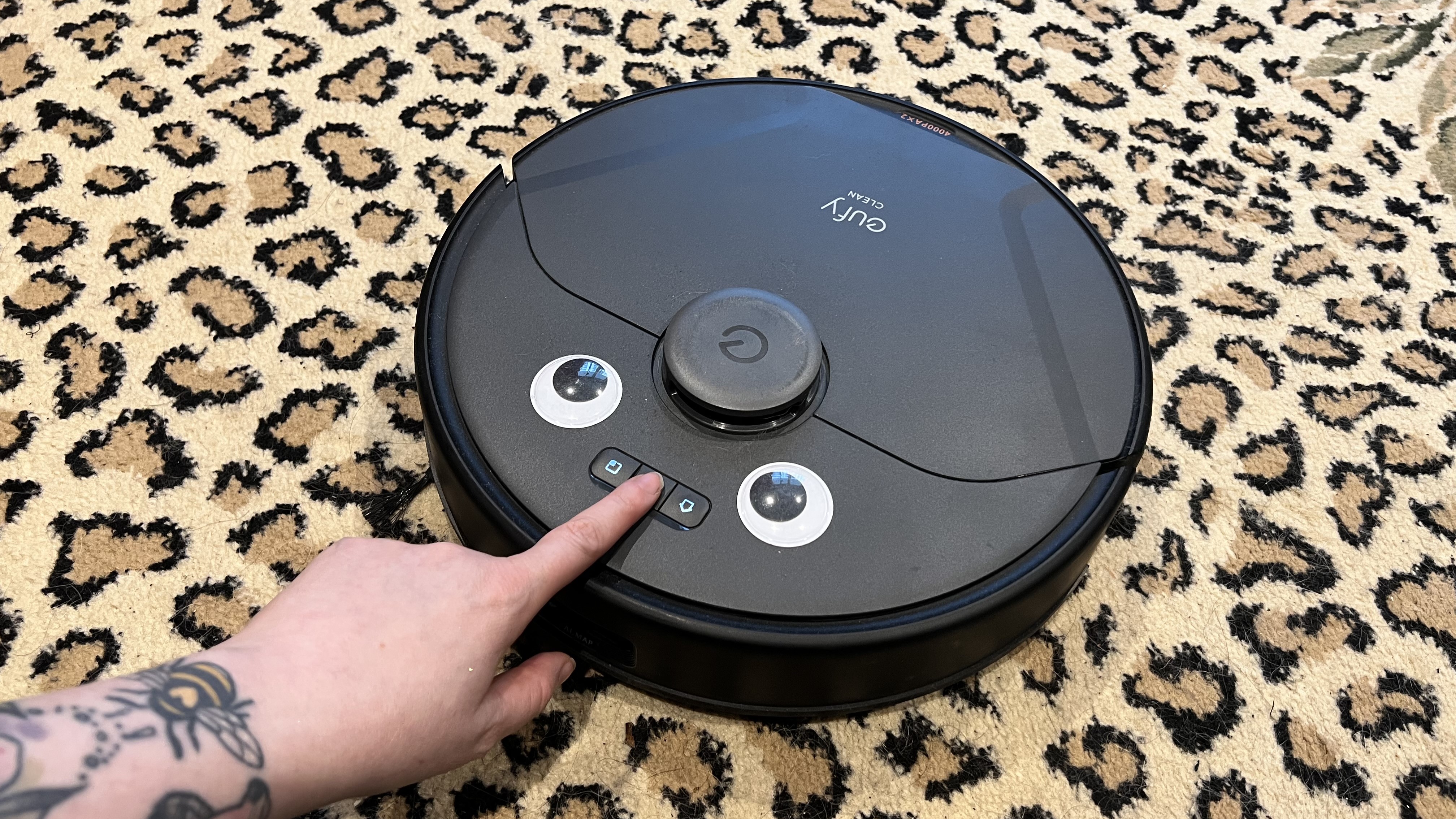Are robot vacuums worth it? We ask the expert
Robot vacuums have become common in homes, but do they truly deliver on their promises?

Move over, Henry Hoover; your electronic replacement has arrived. Robot vacuums were once a high-tech thing of the future, but now, more and more households own one. It’s possible to purchase one without breaking the bank now, but are they worth it?
Vanessa Terra Bossart, a cleaning industry expert at GreenTerra Cleaning, says, "These little gadgets promise to handle your vacuuming while you go about your day, but are they worth the investment? As someone who’s spent years helping people keep their homes clean, I’ve seen the good, the bad, and the dusty when it comes to these devices,” she jokes.
Let's take a look at whether robot vacuums live up to the hype.

Vanessa Terra Bossart is a cleaning industry expert with over 18 years of experience and a passion for creating healthier, more sustainable spaces. As the founder of GreenTerra Cleaning, she has dedicated her career to redefining cleanliness by combining eco-friendly innovation with exceptional service to transform homes and businesses.
Do robot vacuums clean as well as regular vacuums?
Robot vacuums clean surfaces and pick up dirt, dust, and pet hair. They often have sensors and mapping technology to avoid obstacles and cover the cleaning area systematically, but cleaning efficiency can vary depending on the model and the environment.
On the other hand, traditional vacuums typically do a more thorough job. They usually have stronger suction and larger dust bags to clean deeper into carpets and handle heavier debris. By controlling your cleaning path more precisely, you can also ensure you don't miss any spots with a traditional vacuum.
So, even though robot vacuums are great for cleaning the house and keeping floors tidy, they can't do everything. Due to their smaller dust bins, some robot vacuum models may require more frequent emptying and maintenance than traditional vacuums. For instance, they may not reach corners as effectively as conventional vacuums and can be less effective on high-pile carpets.
Robot vacuums can vary in size and efficiency with different capacities and abilities, so it depends on how big your house and your family are. It also depends on how often you have a deep clean in the house, says Vanessa: “Robot vacuums shine when it comes to daily cleaning. They’re perfect for keeping floors tidy between your bigger cleaning sessions, and for homes with kids or high-traffic areas, a robot vacuum can save you from constantly pulling out a traditional vacuum just to handle the day-to-day messes.”
Sign up to receive the latest news, reviews, buying guides and deals direct to your inbox
They probably aren’t the best investment if you have many furry pets or, like many of us, the chores just get away from you, advises Vanessa: “They’re not miracle workers! Robot vacuums aren’t built for deep cleaning. They struggle with thicker carpets and don’t have the suction power to dig into fibers or handle heavy-duty messes.”
Vanessa has found from personal experience that robot vacuums are best when used in collaboration with a sturdy upright vacuum: “From a practical standpoint, I’d say a robot vacuum is a great tool for maintenance but not a full replacement for an upright or canister vacuum. You’ll still need something more powerful for those deeper cleans—think rugs, upholstery, or when you’re getting ready for guests,” she says.
“But as a partner in your cleaning routine, they’re incredibly convenient, especially if you’re busy and want to keep your home looking presentable without much effort,” advises the expert.

What are the disadvantages of robot vacuums?
While robot vacuums are good for light cleaning, they may struggle with heavier debris and deep cleaning, especially on carpets. This is one of the biggest drawbacks. Traditional vacuums often outperform their robot counterparts in these areas, so you may have to supplement your cleaning routines.
Robot vacuums use sensors and mapping software to navigate spaces. However, they can get stuck if the floor plan is complex or the environment is cluttered. Some models can't handle stairs or thresholds, so they can't work in multi-level homes.
While robot vacuums automate cleaning, they still need regular upkeep. You have to empty the dustbin, clean the brushes, and occasionally replace filters. This can be time-consuming and reduce the vacuum's convenience.
A robot vacuum's battery life is another issue. Most vacuums clean for about 60 to 120 minutes on a single charge, which may not be enough for bigger homes. It may take a while to recharge the vacuum, resulting in incomplete cleaning sessions.
When compared to upright vacuums, they are often more expensive, have a smaller dustbin capacity, and can require frequent emptying, especially if you have pets. It can also depend on your décor taste and how busy your furniture is. “While they’ve come a long way with smart navigation, they can still get stuck under furniture or tangled in cords, which can be frustrating if you’re looking for a completely hands-off solution,” says Vanessa.
"Nobody wants an ornate rug to get tangled up while you’re out of the house and unable to supervise. It can also be a problem if you have pets as it can smear messes around if Fluffy isn’t fully housetrained."

Are cheap robot vacuums worth it?
Budget-friendly robot vacuums are appealing precisely because they're affordable. They're a great way to automate your cleaning without spending a fortune.
Budget robot vacuums usually have features like scheduled cleaning, obstacle detection, and sometimes even Wi-Fi connections. While they may lack advanced features like mapping technology or strong suction power, they can still handle light cleaning tasks effectively, so they're suitable for hard floors and low-pile carpets.
Reviews
Dreame L40 Ultra Robot Vacuum Cleaner and Mop review: almost hands-free cleaning
Eureka J15 Pro Ultra Robot Vacuum review: hands-free cleaning for busy families
Dyson WashG1 Wet Floor Cleaner review: powerful suction for big and small messes
Shark AZ3002 Stratos Upright Vacuum review: a powerful cleaner for challenging debris
Ultenic U16 Flex Cordless Stick Vacuum review: an inexpensive choice for hard-to-reach areas
Eureka NEU800 Omniverse Multi-Function Upright Vacuum review: a powerful yet cheap cleaner
Shark AZ4002 PowerDetect Upright Vacuum review: Intuitive enough for all of your needs
However, significant limitations must be taken into account. Regarding cleaning performance, budget vacuums might not last as long or require frequent emptying, especially on carpets or with more debris. Their navigation capabilities can also be less effective, so you might get stuck on obstacles or miss spots.
However, more recent models have become more efficient as time passes and technology improves. Suppose you haven’t checked out a robot vacuum in a few years. In that case, it might be worth revisiting as they are much less clunky and much more accurate: “The added tech features are also a big plus. Many models let you schedule cleanings through an app or even give voice commands with Alexa,” says Vanessa.
“Imagine coming home to freshly vacuumed floors without lifting a finger!.”

So, are robot vacuums worth it?
It all depends on how often you are hoovering and cleaning and whether you want to keep it as your primary vacuuming device or just to keep on top of things in addition to daily cleans.
Vanessa thinks that yes, they are: “I’d say yes—if you know what to expect. Think of a robot vacuum as your “everyday helper” rather than your go-to for deep cleaning. If you’ve got pets or a busy household, it can make your life much easier. Just don’t toss your upright vacuum out yet—you’ll still need it for the heavy lifting.”

Jen Thomas, a freelance journalist and Magic Radio presenter, is renowned for her 20 years of expertise in reviewing vacuums for Top Ten Reviews. She loves leopard print, houseplants, and mixing patterns. She trains her rescue dog in her free time and tends to her balcony garden.
